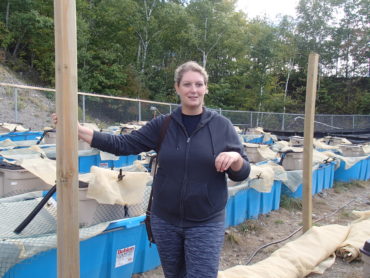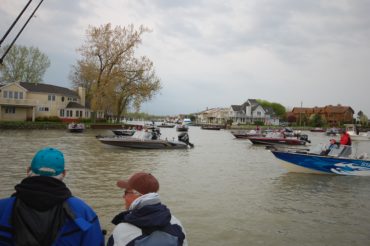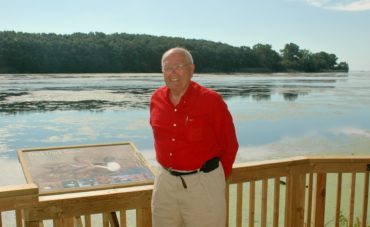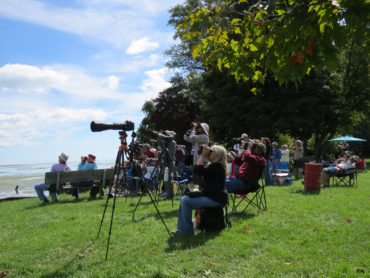-
 AdvocacyAgricultureAuthorsEnergy, Clean Energy, Ethanol and FrackingEquity and Environmental JusticeIndustry, Energy, Economic DevelopmentLake ErieNewsOhioPolicyPolitics, Policy, Environmental JusticeSandra SvobodaWaterfront Development
AdvocacyAgricultureAuthorsEnergy, Clean Energy, Ethanol and FrackingEquity and Environmental JusticeIndustry, Energy, Economic DevelopmentLake ErieNewsOhioPolicyPolitics, Policy, Environmental JusticeSandra SvobodaWaterfront DevelopmentThe Global Movement in Local Courts
- by Sandra SvobodaIf Toledo voters approve the Lake Erie Bill of Rights proposal on their Feb. 26 ballots, how it will change environmental law and policy won’t be immediately be known.
00Sandra Svoboda
-
 AdvocacyAuthorsBudgetEquity and Environmental JusticeIndustry, Energy, Economic DevelopmentLake ErieMunicipalitiesNewsOhioPolitics, Policy, Environmental JusticeRegionSandra Svoboda
AdvocacyAuthorsBudgetEquity and Environmental JusticeIndustry, Energy, Economic DevelopmentLake ErieMunicipalitiesNewsOhioPolitics, Policy, Environmental JusticeRegionSandra SvobodaMaking Waves at the Ballot Box
- by Sandra SvobodaResidents of Toledo will have the Lake Erie Bill of Rights on their ballots in a special election on Feb. 26.
Sandra Svoboda
-
 AdvocacyAgricultureAuthorsBudgetEnergy, Clean Energy, Ethanol and FrackingEquity and Environmental JusticeJames ProffittLake ErieNewsOhioPolitics, Policy, Environmental Justice
AdvocacyAgricultureAuthorsBudgetEnergy, Clean Energy, Ethanol and FrackingEquity and Environmental JusticeJames ProffittLake ErieNewsOhioPolitics, Policy, Environmental JusticeThreat to Business
The 8,000 member businesses of the Ohio Chamber of Commerce’s would be undermined by the Lake Erie Bill of Rights if it passes and is enacted, says a spokesman for the group.
James Proffitt, Great Lakes Now
-

Will Tench Be the Next Great Lakes Invasive-Species Problem?
- by Andrew ReevesIt was the fish’s failures as an invasive species, perhaps more than its successes, that first drew Sunči Avlijaš to studying tench.
Andrew Reeves
-
 AdvocacyAuthorsBudgetEnbridge Line 5 and Other PipelinesEquity and Environmental JusticeGary WilsonIndustry, Energy, Economic DevelopmentNewsPolitics, Policy, Environmental JusticeProtect
AdvocacyAuthorsBudgetEnbridge Line 5 and Other PipelinesEquity and Environmental JusticeGary WilsonIndustry, Energy, Economic DevelopmentNewsPolitics, Policy, Environmental JusticeProtectNew Great Lakes governors: Fast starts, slow transitions and early divisive politics
Michigan Governor Gretchen Whitmer articulated a big water agenda in her election campaign and wasted no time acting on it when she assumed office.
Gary Wilson, Great Lakes Now
-

(Almost) Everything You Want to Know about Lake Erie’s Walleye Population
The walleye population in Lake Erie has exploded during the past few years — the fishing is considered to be great, and fisheries managers say it will likely get better in the near future as younger fish grow to keeping size.
James Proffitt, Great Lakes Now
-
 AdvocacyAuthorsBudgetDrinking WaterJohn HartigMichiganNewsPolicyPolitics, Policy, Environmental JusticeProtectRecreational Hunting and FishingRegionThe StatesU.S. and Canadian Federal Governments
AdvocacyAuthorsBudgetDrinking WaterJohn HartigMichiganNewsPolicyPolitics, Policy, Environmental JusticeProtectRecreational Hunting and FishingRegionThe StatesU.S. and Canadian Federal GovernmentsJohn Dingell – A Conservation Hero As Remembered by John Hartig
Throughout his life Dingell was a congressional page, a park ranger, a Second Lieutenant in the U.S. Army during World War II, an assistant county prosecutor, and always a lover of the great outdoors.
He grew up fishing and hunting in and along the Detroit River and western Lake Erie.John Hartig, Great Lakes Now
-
 AuthorsDrinking WaterGary WilsonIndustry, Energy, Economic DevelopmentLake MichiganNewsPolicyProtectThe StatesWater Quality and Restoration EffortsWater WithdrawalsWisconsin
AuthorsDrinking WaterGary WilsonIndustry, Energy, Economic DevelopmentLake MichiganNewsPolicyProtectThe StatesWater Quality and Restoration EffortsWater WithdrawalsWisconsinWill Foxconn’s flip flopping draw scrutiny from Great Lakes region?
While Foxconn Technology rethinks its investment in southeast Wisconsin, one thing remains constant: Wisconsin is not wavering in its commitment to divert Lake Michigan water.
Gary Wilson, Great Lakes Now
-
 AuthorsBeaches, Boating, Paddle Sports and SailingDetroit RiverFish, Birds and AnimalsJohn HartigNewsPlayProtectRecreation and TourismRecreational Hunting and FishingTourism
AuthorsBeaches, Boating, Paddle Sports and SailingDetroit RiverFish, Birds and AnimalsJohn HartigNewsPlayProtectRecreation and TourismRecreational Hunting and FishingTourismA Great Lakes Moment from John Hartig
Raptors are birds of prey that hunt food primarily by flight, using their keen senses, chiefly vision. Examples of raptors include broad-winged hawks, bald eagles, peregrine falcons, osprey, and others.
John Hartig, Great Lakes Now
-

Great Lakes artists work with water, weather, love
The intersection of art and nature — especially now — is becoming more popular in the digital age where social media holds sway over the time and attentions of so many. And for artists working to gather audiences, and grasp the natural world through paints and lenses, the Internet can be a crucial link.
James Proffitt, Great Lakes Now
